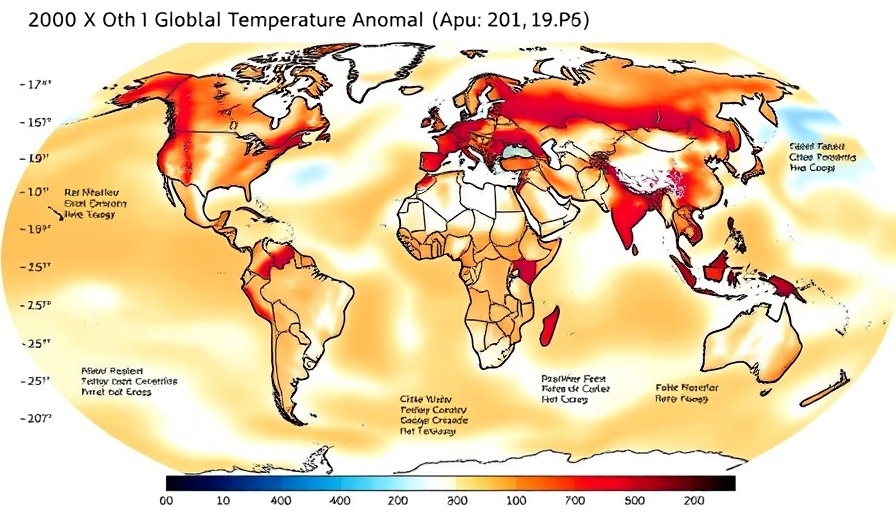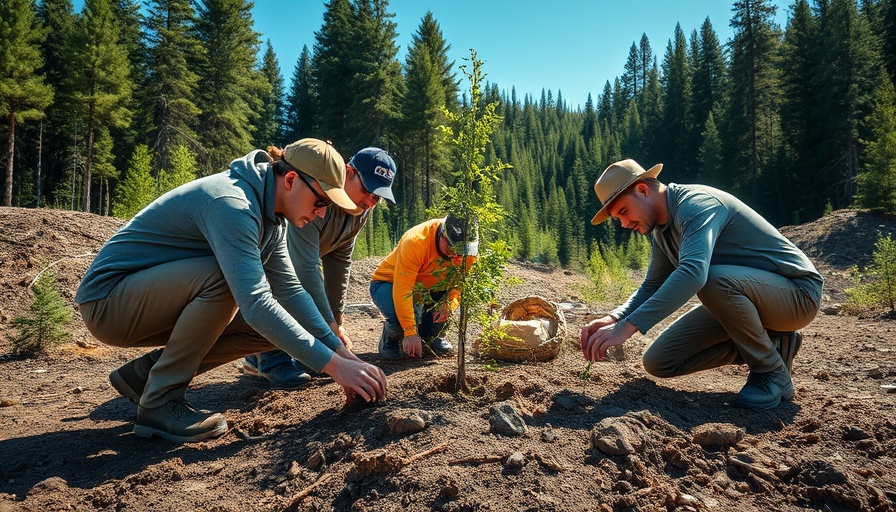
Record-Breaking Heat: The Surprising January of 2025
As we dive into 2025, climate scientists are taken aback by a staggering climatic anomaly: January 2025 has been declared the warmest January on record, according to the EU Copernicus Climate Change Service. The average air temperature remarkably reached 13.23°C (about 55.8°F), marking a rise of 0.09°C above the previous record set just a year prior. This leap in temperature stands 1.75°C above pre-industrial averages, underscoring unsettling climate trends.
Temperature Trends and Unexpected Patterns
The El Niño weather phenomenon, which enhanced temperatures in 2024, had dissipated—leading many scientists to anticipate a cooler start to 2025. Yet, the emergence of a La Niña event, typically associated with cooler climates, has not curbed the rising temperatures observed in January. As Adam Scaife from the UK Met Office noted, the record-breaking figures were unexpected: "If you’d asked me last year, I would have anticipated a cooler January. We don't really know why that is."
Broader Implications for Climate Health
The implications of January's warm temperatures extend beyond discomfort. The Arctic's sea ice level dropped to about 6% below the average while Antarctic levels trailed at 5% below. Such reductions possibly indicate a troubling pattern for climate stability, impacting global ecosystems, sea levels, and weather systems worldwide.
The Path Ahead: Anticipating Future Conditions
While La Niña is still developing, early predictions indicate the phenomenon may not suffice to lower global temperatures significantly. These indications prompt us to consider: What does this warming trend mean for health and wellness? With extreme weather events likely to become more frequent, it’s crucial for health enthusiasts to adopt wellness strategies that incorporate climate resilience, supporting both personal and planetary health.
A Call for Conscious Action
As we navigate these unprecedented temperature fluctuations and their broader environmental implications, individuals can become proactive participants in climate conversations. Staying informed, advocating for climate-conscious policies, and adopting sustainable personal practices are essential steps towards fostering a healthier future.
 Add Row
Add Row  Add
Add 




 Add Row
Add Row  Add
Add 



Write A Comment